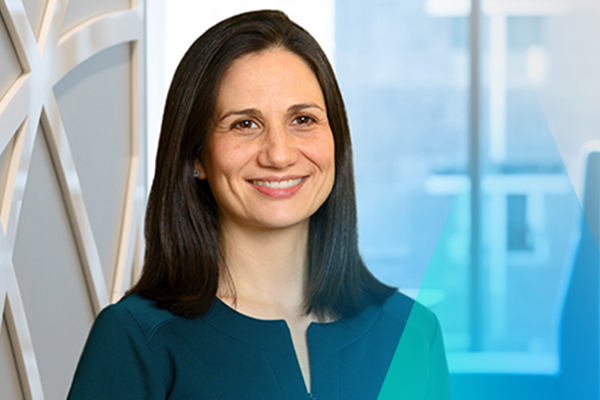4 Compelling Use Cases for Blockchain in Healthcare
Summary
While emerging blockchain technology is expected to impact a range of businesses in the years ahead, its strengths seem particularly well suited for the complex data-sharing demands of the pharmaceutical and healthcare industries.Many believe blockchain technology ultimately will transform healthcare by streamlining and safeguarding data collection, storage, and distribution across virtually all essential life science and healthcare domains. The end result, proponents say, should be a far more secure, efficient, and effective healthcare system.
Blockchain’s Distributed Ledger
Blockchain’s vast potential stems from the powerful combination of security, transparency, and flexibility it offers. In simplest terms, the technology creates a decentralized ledger that is immutable, time-stamped, tamper-proof and accessible to pre-approved network participants. These features create the foundation for establishing trust, accountability, traceability, and integrity in data sharing.1
Unlike existing information architectures that require organizations to manage and secure their own data, blockchain’s distributed framework allows transactional and historical records to become shared assets accessible to and secured by all network participants.
Encrypted data “blocks” can be opened and viewed but not altered or deleted; new information blocks are added chronologically and synchronized across the database to become part of the permanent record, also known as the chain. Importantly, blockchain activities are documented and time-stamped to provide a detailed chain of custody or virtual paper trail accessible to all network participants.
This functionality supports previously unobtainable levels of data security and integrity, and also creates a mechanism for significantly improving the management of iterative processes. According to a recent report by BIS Research, blockchain could save the healthcare industry between $100 and $150 billion annually by 2025 in costs associated with data breaches, legacy information technologies, and operational support and personnel, and through a reduction in fraud and product counterfeiting.2
Healthcare Use Cases
Below are some of the most compelling use cases for blockchain in healthcare:
1. Life Sciences
From ensuring the consistency and integrity of drug development data to more effective drug trial management and tighter control of the drug supply chain, blockchain offers a range of powerful opportunities for pharmaceutical companies.
- Blockchain-enabled, time-stamped, and immutable records of protocols, clinical trials and results could reduce fraud and error in clinical trial records by creating audit paths through unalterable data. Blockchain can also enhance the management of complex trial analytics and facilitate more secure and efficient research collaboration.3
- The challenge of counterfeit medicines is an enormous problem worldwide, particularly in developing nations. The World Health Organization estimates that 10% of medicines circulating in middle-income countries are either substandard or falsified,4 which puts world sales of bogus drugs at about $30 billion annually.5 Applying blockchain technology to the pharmaceutical supply chain would ensure the provenance of legitimate products by enabling track-and-trace capabilities, both downstream from manufacturer and upstream from the point of sale. This functionality would greatly reduce opportunities for counterfeit products to enter the market.
- Similarly, blockchain could be harnessed to better manage unsold drugs returned by wholesalers to manufacturers, which collectively account for 2–3% of the US market, or about $7–10 billion annually.6 By accessing drug package serial numbers within a blockchain network, the returned medication’s provenance could be verified to more easily facilitate resale to another distributor or wholesaler.
2. Healthcare Institutions and Providers
A blockchain-enabled care environment will strengthen the interoperability, accessibility, management, and security of patient data in a host of areas, while enhancing core hospital functions like credentialing, supply chain, and revenue cycle management.7
- Transforming the EHR into a decentralized system whereby each patient record essentially becomes its own distinct blockchain could greatly reduce or eliminate security vulnerabilities. Blockchain could also provide a detailed chronological record of interventions and clinical notes and ensure that elements of the record were not intentionally or unintentionally modified or deleted. Perhaps most importantly, blockchain could enhance the secure interoperability of patient records between and among providers to enable seamless access to both historic and real-time patient data across the care continuum.
- Clinician credentialing and payer enrollment are complex, labor-intensive processes that are still largely dependent on phone calls, faxes, and mail.8 Developing blockchain credentialing platforms that would allow information to be aggregated, updated, and verified within a secure database environment could greatly reduce the inefficiencies, costs, and potential errors associated with the current credentialing approach.
- Patient consent management and secure patient contracting could be facilitated by platforms that record compliant and unalterable consent and contract information.
- Much like the application of blockchain in the pharmacy supply chain, the technology could be used in the broader healthcare supply chain to ensure product integrity while more tightly managing inventory to reduce waste. In addition, blockchain could be applied to devices tied to the medical Internet of things, including implantable devices like pacemakers, to reduce dangerous security vulnerabilities.9
3. Payers
Blockchain ultimately could play a transformative role in streamlining the management and payment of value-based reimbursement claims.
- By streamlining the process of pre-authorizations, medical-necessity verification, and the validation of value-based criteria, blockchain could reduce provider friction, increase transparency for both patients and providers, and accelerate reimbursement. As part of this process, blockchain could help reduce administrative expenses by automatically flagging or recovering missing or erroneous provider data.
- Smart contracts are a key capability within the blockchain ecosystem. In essence, they authorize automatic payment when specific criteria are recorded and verified in the blockchain ledger. Smart contracts could link payers and providers for faster adjudication and reimbursement and be used with patient-reported health data to generate incentive payments for more effective chronic disease management.10
- Last year, CVS subsidiary Aetna joined the Synaptic Health Alliance, a consortium of healthcare companies, to explore how blockchain could help ensure that the most current information is available in health plan provider directories.11 According to the consortium, industry estimates indicate more than $2 billion is spent annually in healthcare to acquire, update, and maintain provider directory data.
4. Patients
One of the most promising aspects of blockchain in healthcare is the prospect of providing patients with safe and complete access to their medical history.
- By transforming the way patient records are collected and stored–shifting from siloed repositories to a dynamic, accessible blockchain platform–patients can gain access to their information wherever they are and whenever they need it.
- Data from wearable devices and remote medical equipment could be automatically uploaded into the blockchain to give providers secure access to real-time clinical information.
- Medication adherence can be improved through automated verification via smart dispensers linked to blockchain platforms.
The Future of Blockchain in Healthcare
The challenges of developing, coordinating, and implementing blockchain platforms across critical areas in healthcare will be significant. Yet there’s no question the technology’s potential for addressing many of healthcare’s most serious and seemingly intractable problems is enormous. Forward-thinking organizations therefore would do well to begin identifying blockchain opportunities across their operations.
Avalere’s expertise in digital health, data collection, clinical registry development, and advanced analytics can help organizations understand the implications of blockchain and position themselves for the changes to come. Contact us today to learn more.
Find out the top 2020 healthcare trends to watch.
Notes
1 Ron Ribitzky, et al., “Pragmatic, Interdisciplinary Perspectives on Blockchain and Distributed Ledger Technology: Paving the Future for Healthcare,” Blockchain in Healthcare Today, Mar 23, 2018.
2 Codrin Arsene, “The Global Blockchain in Health Report: The 2019 Ultimate Guide for Every Executive,” Healthcare Weekly, May 26, 2019.
3 Kefa Rabah, “Challenges & Opportunities for Blockchain Powered Healthcare Systems: A Review,” The Africa Premier Research Publishing Hub, Oct 17, 2017.
4 “1 in 10 Medical Products in Developing Countries is Substandard or Falsified,” World Health Organization, Nov 28, 2017.
5 Ben Hirschler, “Tens of Thousands Dying from $30 Billion Fake Drug Trade, WHO Says,” Reuters, Nov 28, 2017.
6 Prashant Ram, “Top 5 Blockchain Use Cases in Pharma and Healthcare – That You Should Know About!,” Medium.com, Aug 28, 2018.
7 Codrin Arsene, “The Global Blockchain in Health Report: The 2019 Ultimate Guide for Every Executive,” Healthcare Weekly, May 26, 2019.
8 J. Mark Waxman, et al., “Blockchain: A Tool with a Future in Healthcare,” Medical Economics, July 15, 2019.
9 Kevin A. Clauson, et al., “Leveraging Blockchain Technology to Enhance Supply Chain Management in Healthcare: An Exploration of Challenges and Opportunities in the Health Supply Chain,” Blockchain in Healthcare Today, Mar 23, 2018.
10 Jennifer Bresnick, “Five Blockchain Use Cases for Healthcare Payers, Providers,” Health IT Analytics, Oct 10, 2017.
11 “Blockchain-Driven Effort to Address Health Care Provider Data Issues,” Business Wire, Dec 3, 2018.






